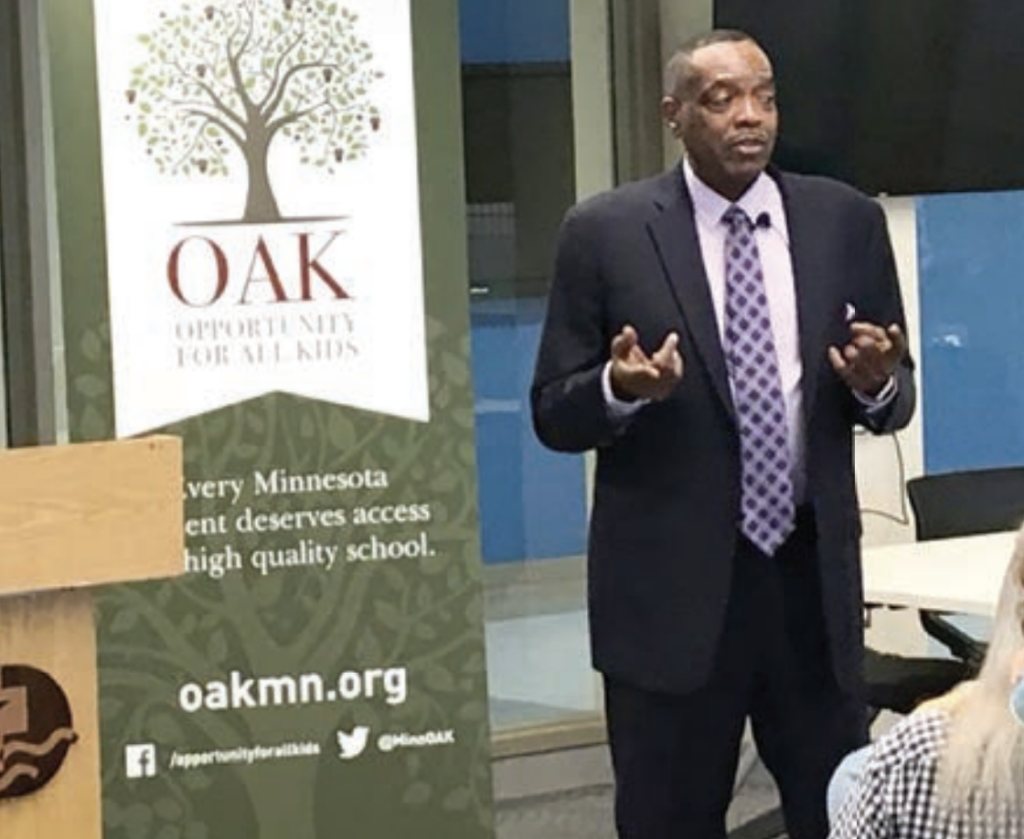The power of choice
Former union chief George Parker now advocates education “by any means necessary”
George Parker, then-president of Washington D.C.’s powerful teacher’s union, experienced a powerful and career-changing “aha” moment during a presentation with a class of third-graders.
When asked to describe his job, he said, “I make sure you get the kind of resources that you need and that your teachers, and then I help to protect the rights of teachers.”
When he had finished, a little girl approached him with a hug. “Baby,” he asked, “why did you just hug me?”
“Because you said you care about us, and you make sure we get the best teachers,” she said.
He remembers saying to himself, as he drove back to his office, “You just lied to that little girl. I told her I ensure that she gets the best teachers.” He “had just spent $10 thousand to make sure a bad teacher got right back in (the classroom).”
Parker told the story at DeLaSalle High School in Minneapolis as the keynote speaker at a celebratory National School Choice Week community breakfast co-sponsored by Center of the American Experiment and The Institute for Justice.

As the union chief, he said, he led the community charge against school choice, always adhering to talking points that castigated proponents of choice as wanting to make money off children. “We couldn’t go to parents and say, ‘we’re against charters because they’re going to decrease the amount of money coming into the union’s coffer.’ So, we’re great, and we’re much greater than reformers in terms of knowing how to package our message to the public.”
The hug from the third grader changed his outlook, Parker said. “That little girl was me.” She is growing up poor, and education was my only way out of poverty.” Taking fi re from unions nationwide, he became an opponent of seniority-based personnel decisions. “I’m probably the only former union president in the country who believed that student performance should be part of a teacher’s evaluation,” he says now. Ousted in the next union election, Parker became a national spokesman for the power of choice. “And not just charter schools,” he says. “Of vouchers, of tax credits, of home schooling, of private schooling. By any means that is necessary, we need to educate our children and educate the children who are the most vulnerable.”